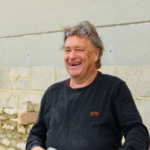Located close to North County Dublin’s windswept coastline, The Surgery Skerries has developed into an institution based on familiarity, trust, and ongoing care rather than merely a medical facility. A practice where patients feel truly known is something that Dr. Seamus Mulholland and his team have created over the past 34 years, which is extremely uncommon in modern healthcare.

The practice has created a remarkably effective experience in both personal and clinical terms by emphasizing consistency over gimmicks. After receiving early vaccinations, children frequently return years later as parents, bringing their own kids with them. A human connection that cannot be created is forged by this continuity. Its foundation is mutual recognition and the soothing care routine that eliminates the need for introductions at each visit.
| Clinic Name | The Surgery Skerries (Dr. Mulholland’s Family Practice) |
|---|---|
| Location | Gleichen House, 7 Strand Street, Skerries, Co. Dublin |
| Phone | 01 8490678 |
| Website | skerriessurgery.com |
| Years of Operation | Over 34 Years |
| Services Provided | Vaccinations, Women’s Health, Family Planning, CDM, Legal Reports |
| Doctors | Dr. Seamus Mulholland, Dr. Ajay Nagindas, Dr. Kiran Durrani, Dr. Zara Quail |
| Nurses | Nurse Jessica, Nurse Maire, Nurse Lorraine |
| Practice Manager | Rhona Mulholland |
| Admin Team | Emma Louise, Ciara, Lauren, Rebecca, Eimear, Olive, Paula, Tanya |
| Operating Hours | Monday–Friday, 8am–1pm & 2pm–5pm |
Strategic team composition has made the practice extremely adaptable. Services range from legal medical reports to childhood vaccinations, providing both responsive treatments and preventive care. Their Chronic Disease Management (CDM) clinic, which helps people with chronic illnesses like diabetes and hypertension, is especially helpful. Consistent in-home care drastically lowers hospital visits, which benefits families and the larger healthcare system financially.
The Surgery places a strong emphasis on teamwork in both its operations and philosophy. Rhona Mulholland, the practice manager, makes sure that all the administrative parts work together seamlessly so that physicians and nurses can focus entirely on patient care. Emma Louise, Lauren, Rebecca, and the rest of her team provide not only administrative but also emotionally astute support. Instead of being filtered through faceless portals or automated phone trees, patients are greeted by voices that recognize them and names they recognize.
The clinic has stayed remarkably clear in its focus: care with context, by utilizing real-time patient relationships rather than outsourced technologies. This clarity also applies to policy choices. Only registered patients are served by the surgery, guaranteeing better service and controlled demand. Although this decision may appear discriminatory, it serves as a safeguard by preserving employee morale, appointment scheduling, and overall service standards.
This Skerries-based clinic adjusted during the pandemic, when telehealth exploded around the world, without sacrificing its principles. They met new demands while maintaining a patient-first approach by carefully incorporating remote consultations. Instead of a frantic overhaul, there was a cool, extremely effective turn to strike a balance between safety and continuity.
The procedure is noteworthy, especially for the health of women. Meetings with Nurses Jessica or Lorraine frequently become safe spaces that go beyond clinical necessity. The assistance, which ranges from family planning to postpartum guidance, is both emotionally and technically sound. This level of empathy is noticeably better in a healthcare environment where women’s concerns are frequently ignored or hurried.
Lunchtimes are observed. Those who arrive late are not accommodated. Although these rules might seem severe at first, they are a part of a rhythm that keeps the team going. Here, medical professionals are protecting care standards rather than trying to meet quotas. They maintain their high effectiveness without burning out by adhering to time and energy constraints.
Clinics like this one have emerged as examples of sustainable healthcare delivery in recent years. According to a report by Ireland’s Primary Care Development Unit, patient outcomes were better in practices with established teams, particularly in suburban and rural areas. As a real-life illustration of how relational healthcare produces statistically stronger outcomes, The Surgery Skerries fits that data remarkably well.
This local practice relies on the one tactic that is frequently disregarded: presence, whereas some large healthcare groups resort to gaudy apps or AI-driven diagnostics. Their approach is straightforward but consistently dependable. Additionally, patients perceive it as stability during uncertain times rather than as a gimmick.
The surgery has been able to remain respected and relevant by upholding boundaries, encouraging staff unity, and improving patient interaction. Skerries provides a realistic model as European healthcare systems deal with capacity constraints and digital transformation in the years to come. “Remember the importance of community, compassion, and continuity,” it states.




